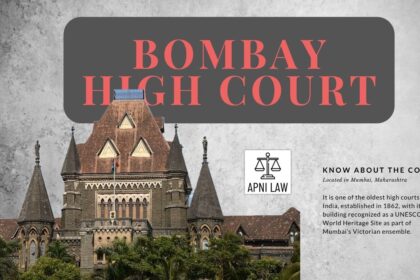Introduction
In Raja Lakshmi v State of Tamil Nadu & Others (H.C.P. (MD) Nos. 793 and 658 of 2025), the Madurai Bench of the Madras High Court addressed the increasing misuse of habeas corpus petitions in missing-person cases. The court criticised police inaction and emphasised that habeas corpus is a constitutional remedy meant only for unlawful detention, not for tracing individuals who go missing voluntarily.
Judgment Name
The judgment, titled Raja Lakshmi v State of Tamil Nadu & Others, was delivered by the Madurai Bench of the Madras High Court.
Facts of the Case
Two habeas corpus petitions came before the court. The first was filed to trace a 45-year-old man who had gone missing. The second concerned an 18-year-old college student who had disappeared.
In the first case, the petitioner stated that her husband, an auto driver with a history of alcoholism and domestic quarrels, had left home after an argument and told his daughter he would not return. She alleged that he might have been involved in a drunken driving case, but no evidence supported that claim.
In the second case, the missing person was a college student who reportedly eloped with a teacher she was romantically involved with. The police had not yet traced her, though the investigation was ongoing.
In both petitions, the affidavits did not contain any evidence suggesting illegal detention by any authority or individual.
What the Court Says
The Madras High Court observed that the police department has proper infrastructure and clear guidelines for tracing missing persons. However, officers often neglect or fail to implement these guidelines, leading to unnecessary habeas corpus petitions.
The court reiterated that habeas corpus is an extraordinary legal remedy meant to challenge illegal or unlawful detention, not a tool to handle general missing-person complaints. Filing such petitions without evidence of detention undermines the true purpose of the writ.
In both cases, the bench found that the missing individuals appeared to have left their homes voluntarily. Therefore, the petitions did not establish any prima facie case of unlawful custody. The court declared that in the absence of such evidence, habeas corpus petitions are not maintainable.
While dismissing both petitions, the court directed the police to continue efforts to locate the missing persons. It ordered that investigations be conducted under the supervision of the Assistant Commissioner of Police to ensure accountability and timely action.
Implications of the Judgment
This ruling serves as a critical reminder about the proper scope of habeas corpus jurisdiction. It discourages petitioners from approaching constitutional courts for missing-person complaints without evidence of unlawful detention.
The judgment also underscores the responsibility of police departments to effectively trace missing individuals using their established mechanisms. By holding the police accountable, the court aims to reduce the misuse of judicial remedies and strengthen administrative performance.
The decision helps maintain judicial efficiency by ensuring that habeas corpus remains available for genuine cases of illegal confinement, not routine tracing matters. It also sets a precedent for other high courts to adopt a stricter approach in similar petitions.
Conclusion
In Raja Lakshmi v State of Tamil Nadu, the Madras High Court made it clear that habeas corpus cannot be invoked to locate missing persons unless there is evidence of illegal detention. The court criticised the police for failing to act efficiently and directed them to follow proper procedures while investigating such cases. By dismissing the petitions but ensuring continued investigation, the court struck a balance between preventing misuse of the writ and safeguarding citizens’ rights. This ruling reinforces judicial discipline and calls for improved accountability in missing-person investigations.








